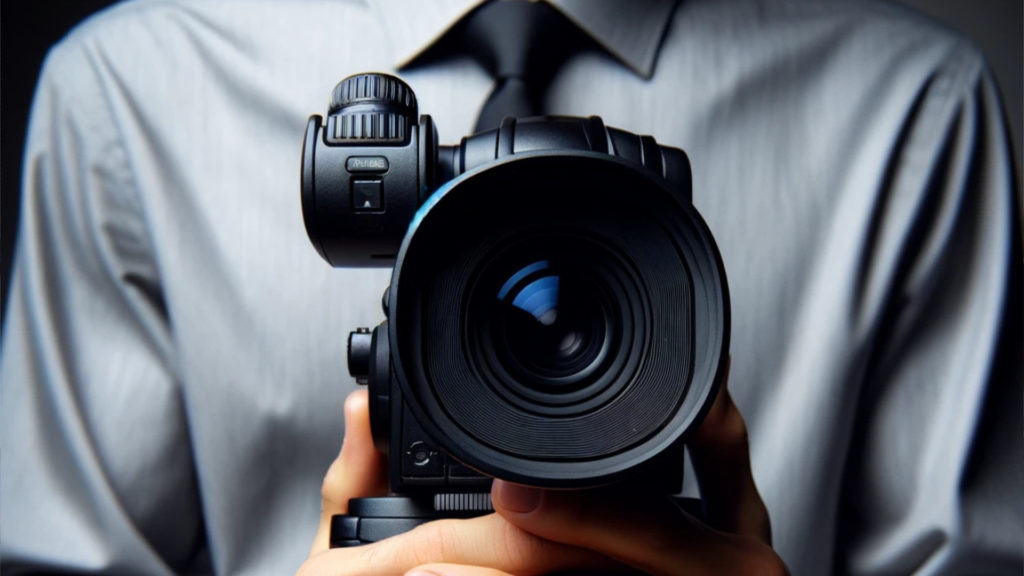Legal videography plays a crucial role in capturing and preserving accurate testimonies for legal proceedings. Whether you’re just starting out as a legal videographer or looking to enhance your deposition recording capabilities, having the right equipment is paramount. Here’s a comprehensive guide to the essential gear needed for a basic video deposition setup:
1. Legal Videographer Camera:
A high-quality camera with video recording capabilities is the cornerstone of any legal videographer’s toolkit. Opt for a camcorder or a DSLR/mirrorless camera known for its excellent video capabilities. Look for features like 1080p or 4K recording, image stabilization, and manual focus control for precise framing. The one pictured is a Canon XF100.
2. Tripod:
A sturdy tripod ensures stable and professional-looking shots. Choose one with adjustable height and a fluid head for smooth panning and tilting movements. Lockable legs and quick-release plates add convenience during setup and breakdown. The one pictured is a Dolica 65″ tripod.
3. Microphones:
Clear audio is essential for capturing accurate testimonies. A shotgun microphone with a shock mount can effectively capture the speaker’s voice while reducing background noise. Consider using a separate lavalier (lapel) microphone for the deponent and attorneys, ensuring consistent and clear audio.
4. Lighting: (Not always needed)
Because most professional camcorders can compensate for low light settings, professional lighting is regularly not needed. However, when filming testimony in super low lit settings (a private home with no windows or dim light), it’s good practice to provide lighting to compensate. Proper lighting enhances video quality and ensures visibility of facial expressions and body language. Softbox equipment lights or LED panels with adjustable brightness and color temperature provide consistent and flattering illumination.
5. External Recorder:
Although many cameras have built-in recording, an external recorder can offer higher quality recording and the ability to use XLR microphones for even better audio quality.
6. Cables and Adapters:
Ensure you have the necessary cables and adapters to connect your microphone, camera, and other equipment. XLR cables for microphones and HDMI/SDI cables for video output are commonly used.
7. Headphones:
A good pair of headphones lets you monitor audio quality during the deposition, ensuring that all voices are clear and free from interference.
8. Memory Cards and Batteries:
Always have extra memory cards and fully charged batteries on hand to prevent disruptions during the deposition.
9. Carrying Case:
A durable and protective carrying case helps you transport your equipment safely between locations.
10. Backups:
To ensure redundancy, consider recording to multiple sources simultaneously, such as both the camera and an external recorder. This provides a backup in case one recording fails. You DO NOT want to lose a word of witness testimony. Ensure you choose the professional legal videographer equipment on this list to guarantee a problem-free deposition.
11. Laptop or Tablet:
A laptop or tablet is essential for managing files, labeling recordings, and ensuring everything is captured correctly. The pictured laptop is a MacBook Pro.
By assembling these essential pieces of equipment, you’ll be well-prepared to provide reliable and high-quality legal videography services for video depositions. Remember that practice and attention to detail play a vital role in achieving the best results, so take the time to familiarize yourself with your equipment and its capabilities.
Still not sure if you’re set? Feel free to reach out below and we would be happy to answer any questions to get you ready.


